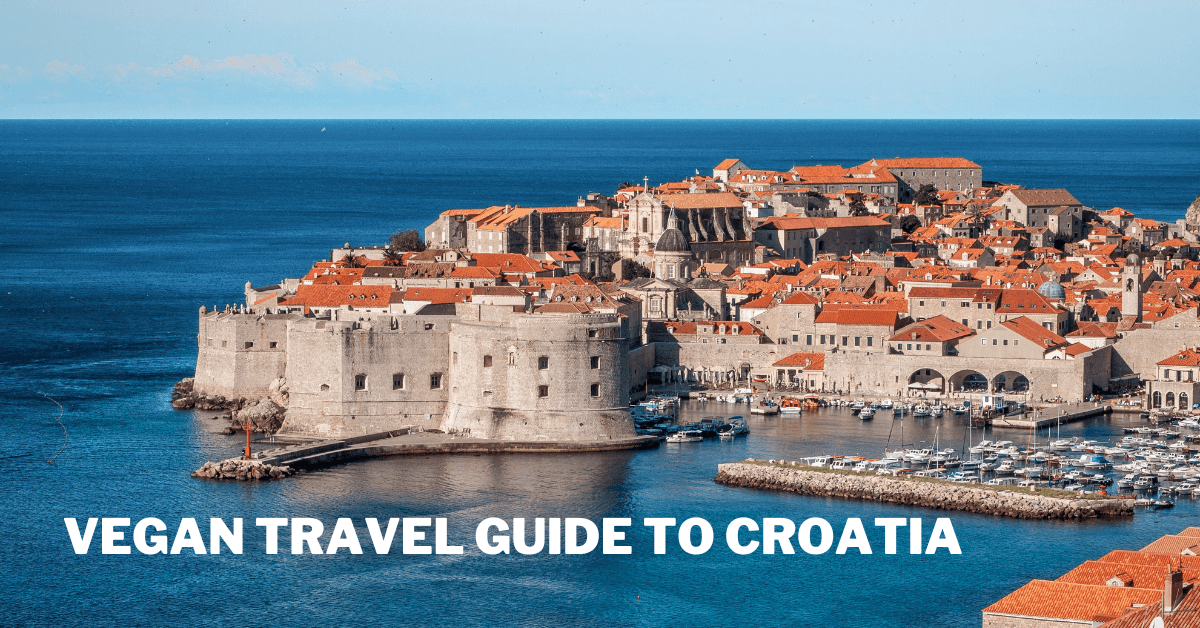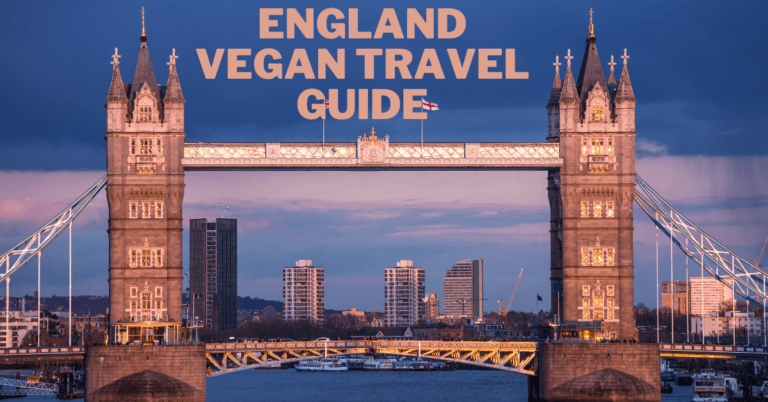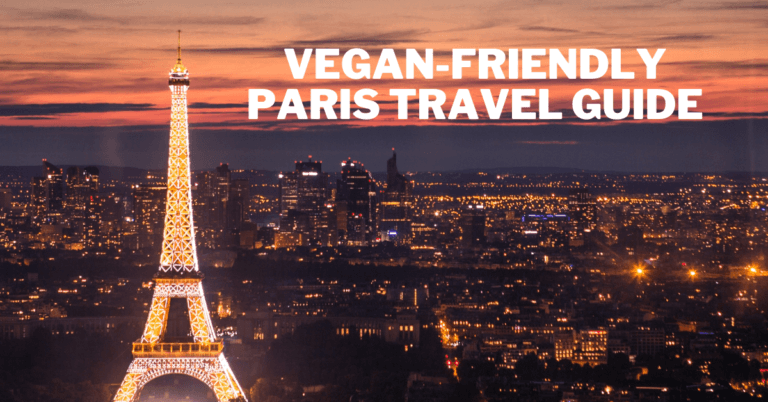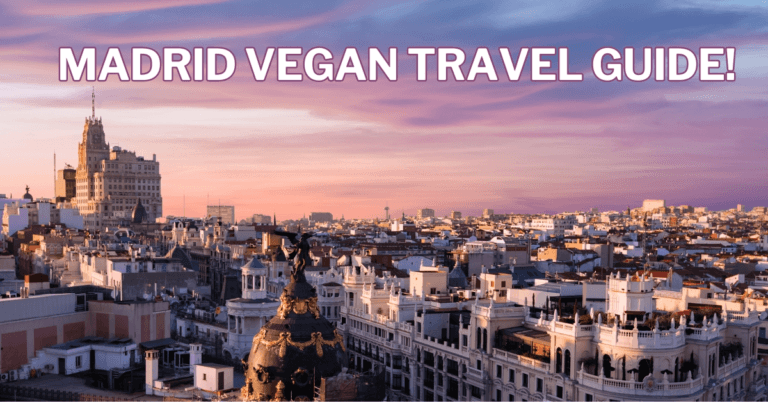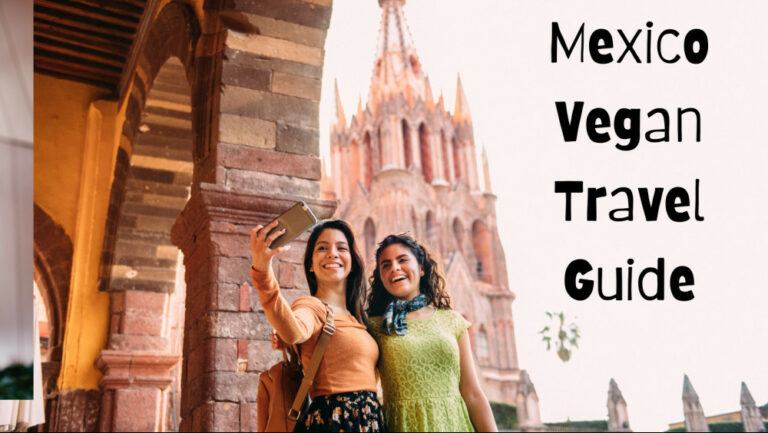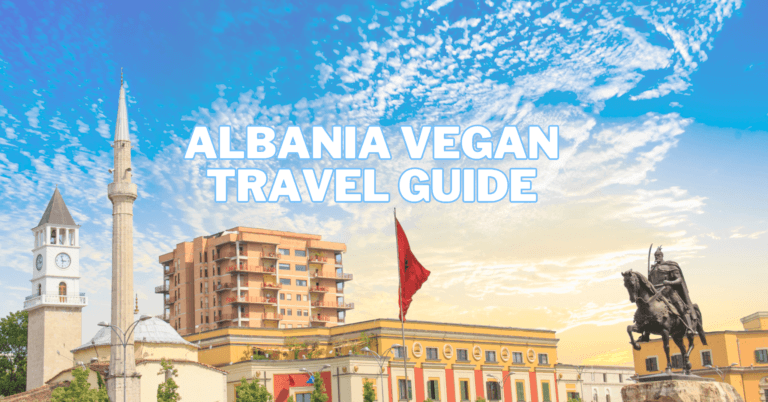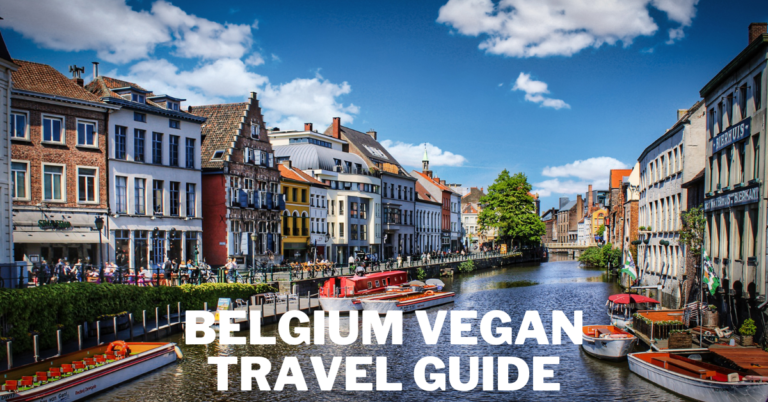Vegan Travel Guide To Croatia
Vegan Travel Guide To Croatia
Welcome to the vibrant and diverse world of vegan travel in Croatia. The Adriatic Sea kisses ancient cities in this country, where lush national parks are entwined with rich history and steadily growing plant-based dining.
Croatia, often celebrated for its stunning landscapes and cultural heritage, is also emerging as a welcoming destination for vegan travellers.
In this guide, we will embark on a culinary journey that uncovers the flavours of this beautiful Mediterranean country while navigating the nuances of veganism.
From the charming streets of Dubrovnik to the enchanting waterfalls of Plitvice Lakes, Croatia's treasures await discovery by travellers with a taste for compassionate and eco-conscious adventures.
Whether you're a seasoned vegan or intrigued by plant-based possibilities, join us as we explore the wonders of Croatia through a vegan lens.

Vegan History In Croatia
The roots of veganism in Croatia stretch deep into its history, echoing a connection with the land that predates modern culinary trends.
Croatia's culinary traditions are heavily influenced by its geographical diversity, with coastal regions boasting an abundance of fresh seafood while inland areas celebrate hearty meat-based dishes.
However, the concept of plant-based living resonates with the country's agricultural history.
Generations of Croatians have cultivated their fruits and vegetables; in rural communities, plant-based diets have been a way of life.
This heritage of subsistence farming, where seasonal produce takes center stage, resonates with the essence of veganism.
More recently, the global surge in awareness about sustainable living and ethical consumption has fostered the growth of veganism in Croatia's urban centers.
Zagreb, in particular, has witnessed a surge in vegan restaurants and cafes fueled by a young, environmentally-conscious population.
Today, Croatia's culinary landscape is evolving, offering an irresistible blend of traditional Mediterranean flavours and innovative vegan dishes, making it a compelling destination for those who seek to explore the history and future of compassionate dining.
Vegan-Friendly Cities And Regions In Croatia
Let's delve into the details of the vegan-friendly cities and regions in Croatia:
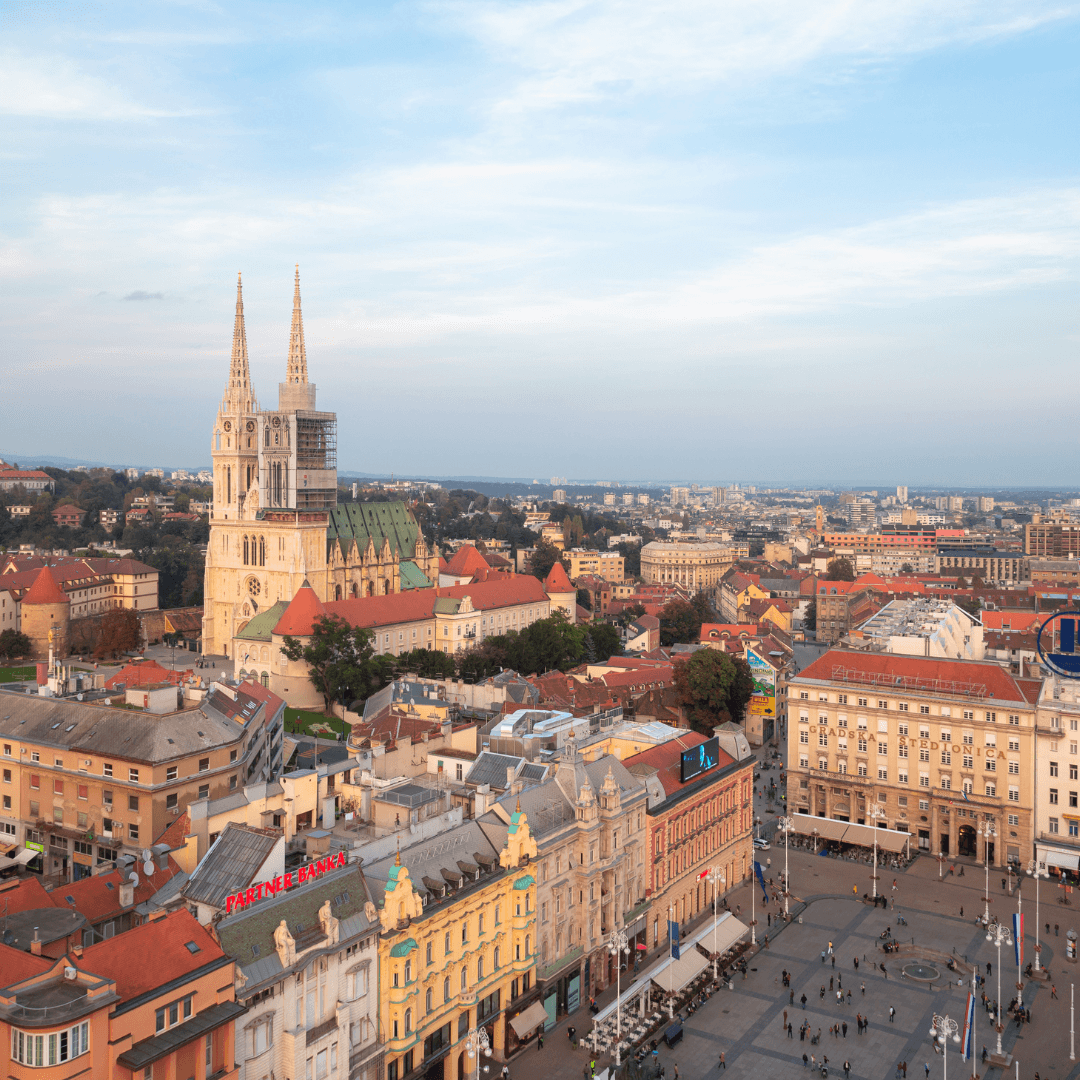
1. Zagreb – The Capital Of Vegan Innovation
In Zagreb, the vegan scene is thriving. The city boasts many vegan restaurants, cafes, and bakeries.
Here, you can savour creative vegan dishes such as mushroom-based “ćevapi,” plant-based “štrukli,” and veganized “sarma” (stuffed cabbage rolls).
Don't miss visiting Green Point, a beloved vegan restaurant known for its diverse menu and innovative culinary creations.
Zagreb's farmers' markets are also excellent places to find fresh, locally sourced produce for plant-based meals.
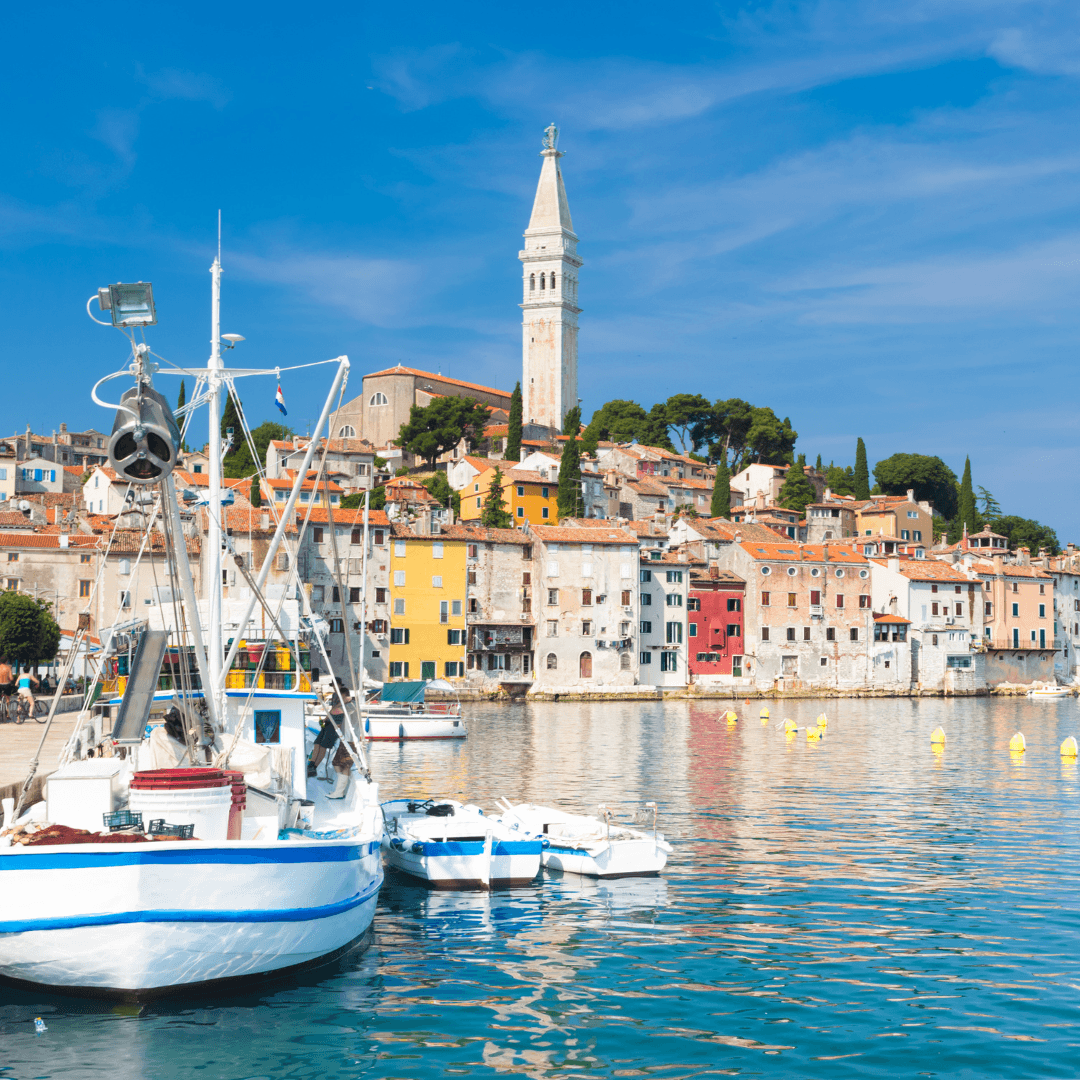
2. Istria – Mediterranean Flavours, Vegan Delights
Istria is known for its breathtaking coastal towns, such as Rovinj and Pula, and and it offers a vegan-friendly twist on Mediterranean cuisine.
Olive oil flows freely, truffles are abundant, and fresh vegetables are a culinary treasure. Vegan travellers can savour vegan truffle pasta, grilled Mediterranean vegetables, and olive oil-drenched bruschetta.
Istria is a great location for wine and olive oil tastings because it has eco-friendly vineyards and olive groves.
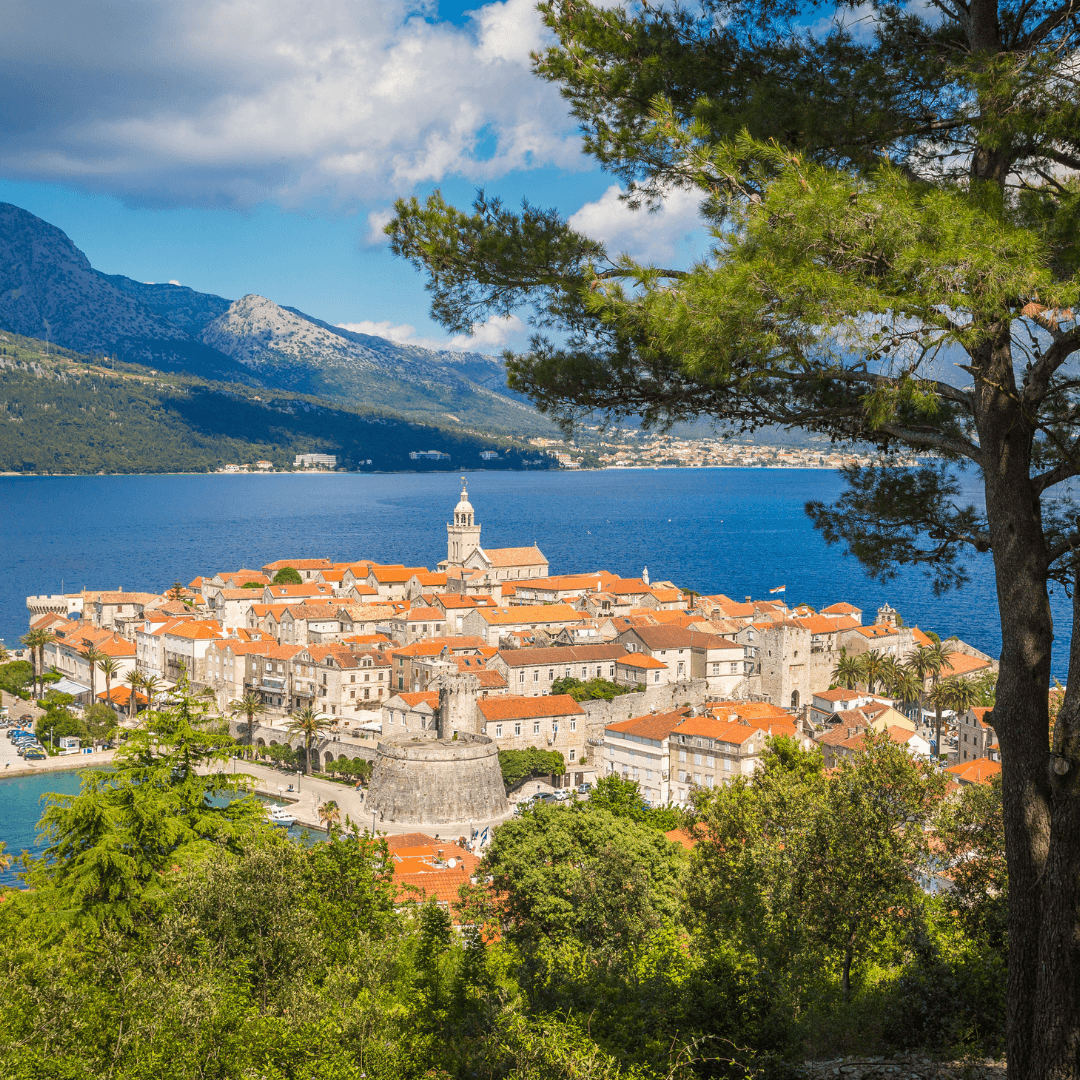
3. Dalmatia – Coastal Vegan Paradise
Along the stunning Dalmatian coast, cities like Split and Dubrovnik cater to vegans with fresh seafood alternatives and a growing number of plant-based eateries.
Enjoy “pašticada” (a traditional stew) made with seitan or explore vegan versions of “gregada” (fisherman's stew) prepared with tofu or tempeh.
The coastal charm of Dalmatia adds to the overall dining experience, as you can savour your vegan meal while overlooking the Adriatic Sea.
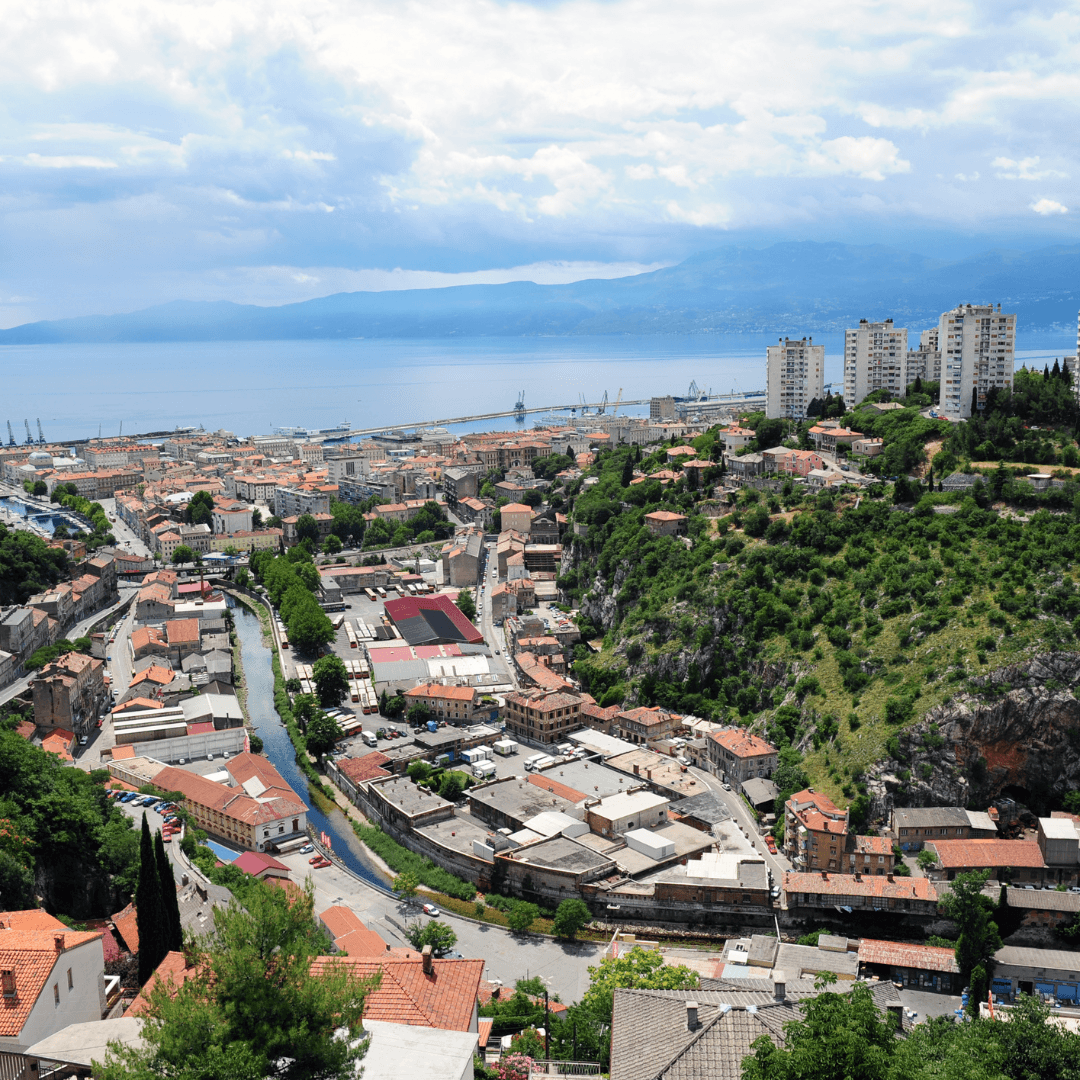
4. Rijeka – Emerging Vegan Scene
Rijeka, Croatia's port city, is gaining recognition for its budding vegan scene.
Vegan travellers can find various plant-based options, from vegan pizza to traditional Croatian dishes made with plant-based ingredients. The city's multicultural history also adds to its diverse vegan offerings.
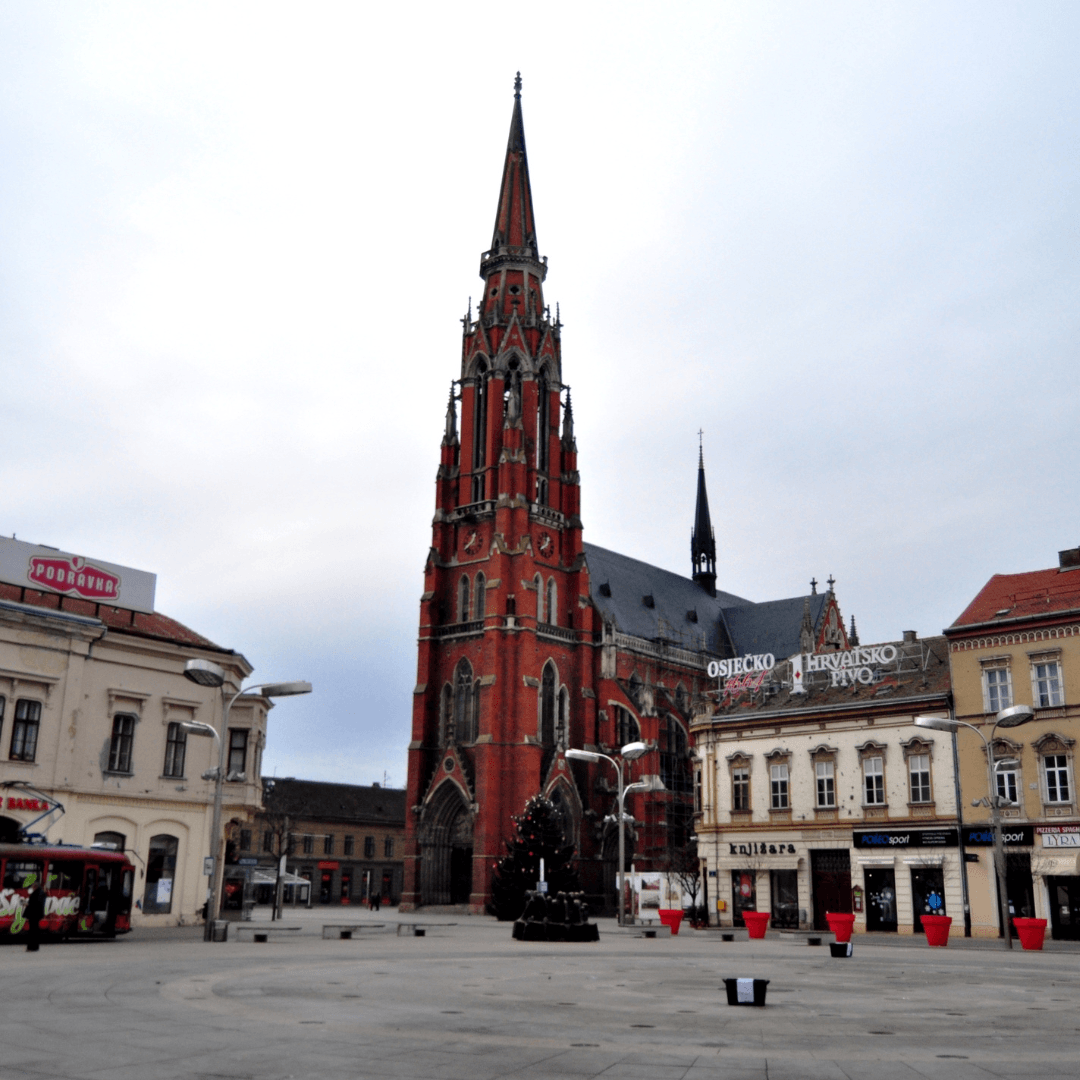
5. Osijek – Vegan Gems In The East
Located in the eastern part of Croatia, Osijek is becoming known for its vegan-friendly eateries.
Vegan cafes and restaurants here often serve dishes with a regional twist, incorporating flavours influenced by Slavonian cuisine.
Explore hearty vegan stews, homemade sausages, and freshly baked vegan bread.
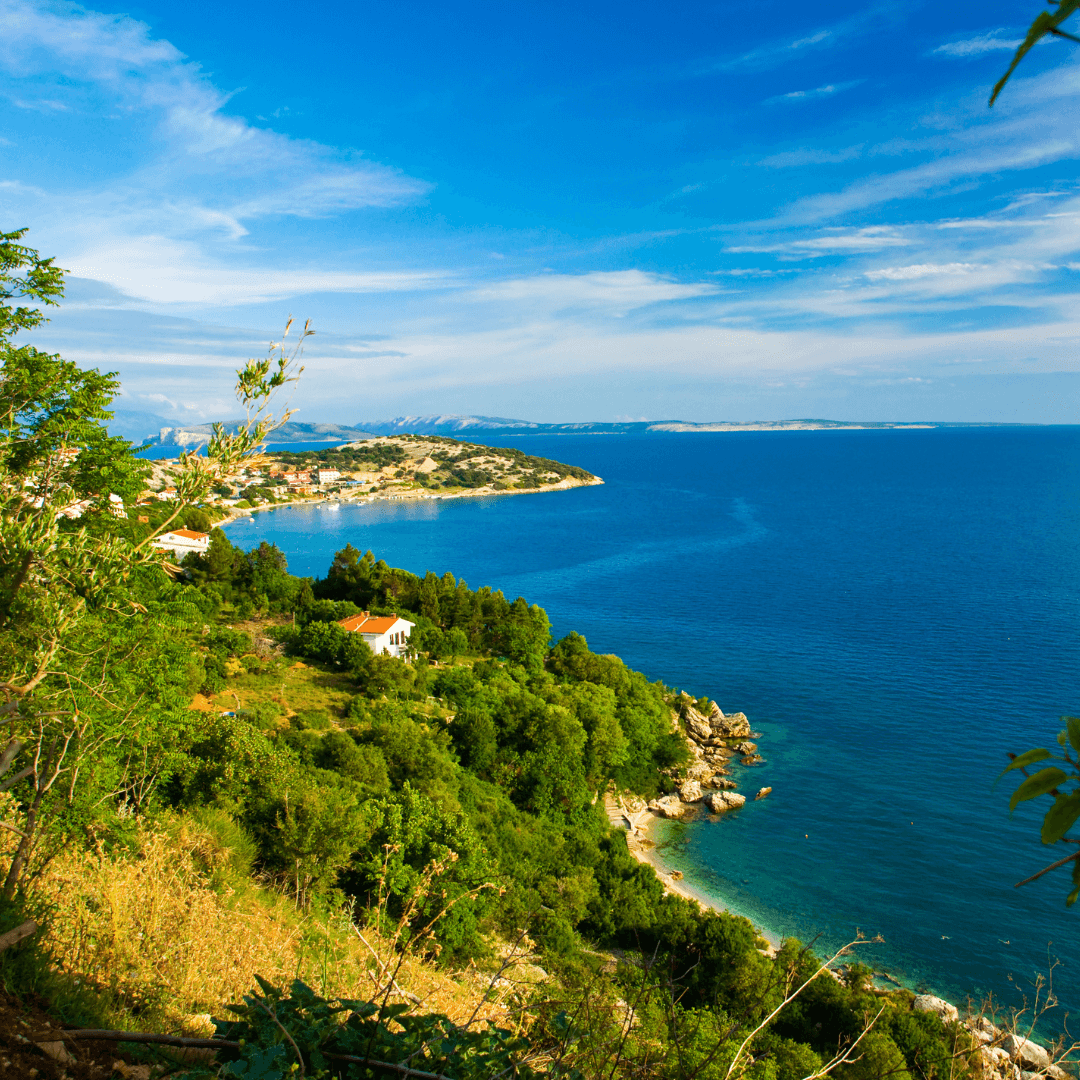
6. Krk – Island Delights
Krk, one of Croatia's beautiful islands, offers vegan travellers a taste of island life with a plant-based twist.
Enjoy vegan versions of seafood dishes like “grilled octopus” made from seitan or tofu. The island's Mediterranean climate also ensures an abundance of fresh fruits and vegetables.
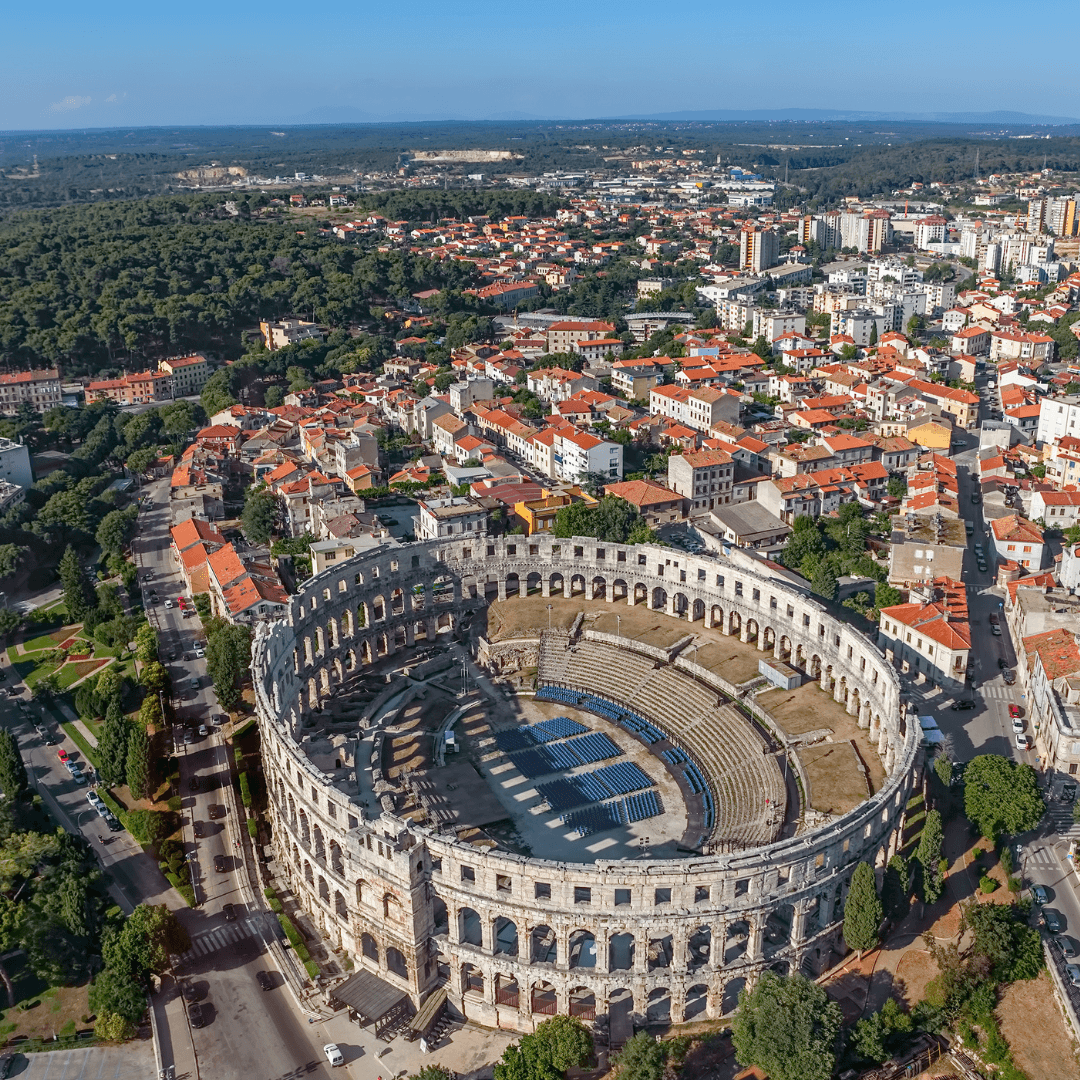
7. Pula – Vegan Eateries By The Sea
Pula, known for its stunning Roman architecture, offers a selection of vegan-friendly restaurants with seaside views.
Try vegan pasta dishes and plant-based seafood alternatives, and indulge in dairy-free ice cream while exploring this coastal gem.
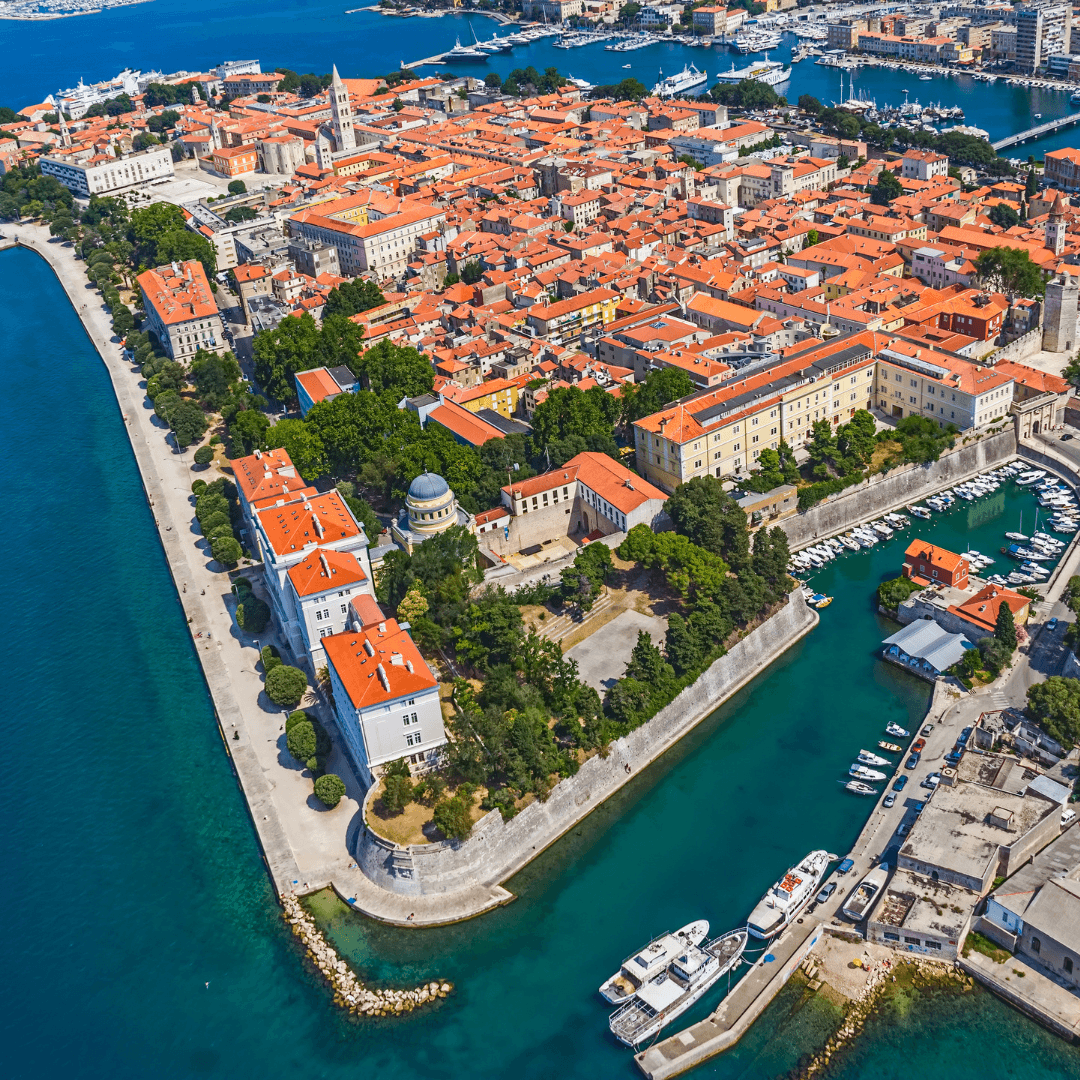
8. Zadar – Vegan Food With A View
Zadar, another coastal city, combines scenic beauty with vegan cuisine. Vegan travellers can dine with a view of the sea while savouring dishes like vegan risotto and freshly prepared salads.
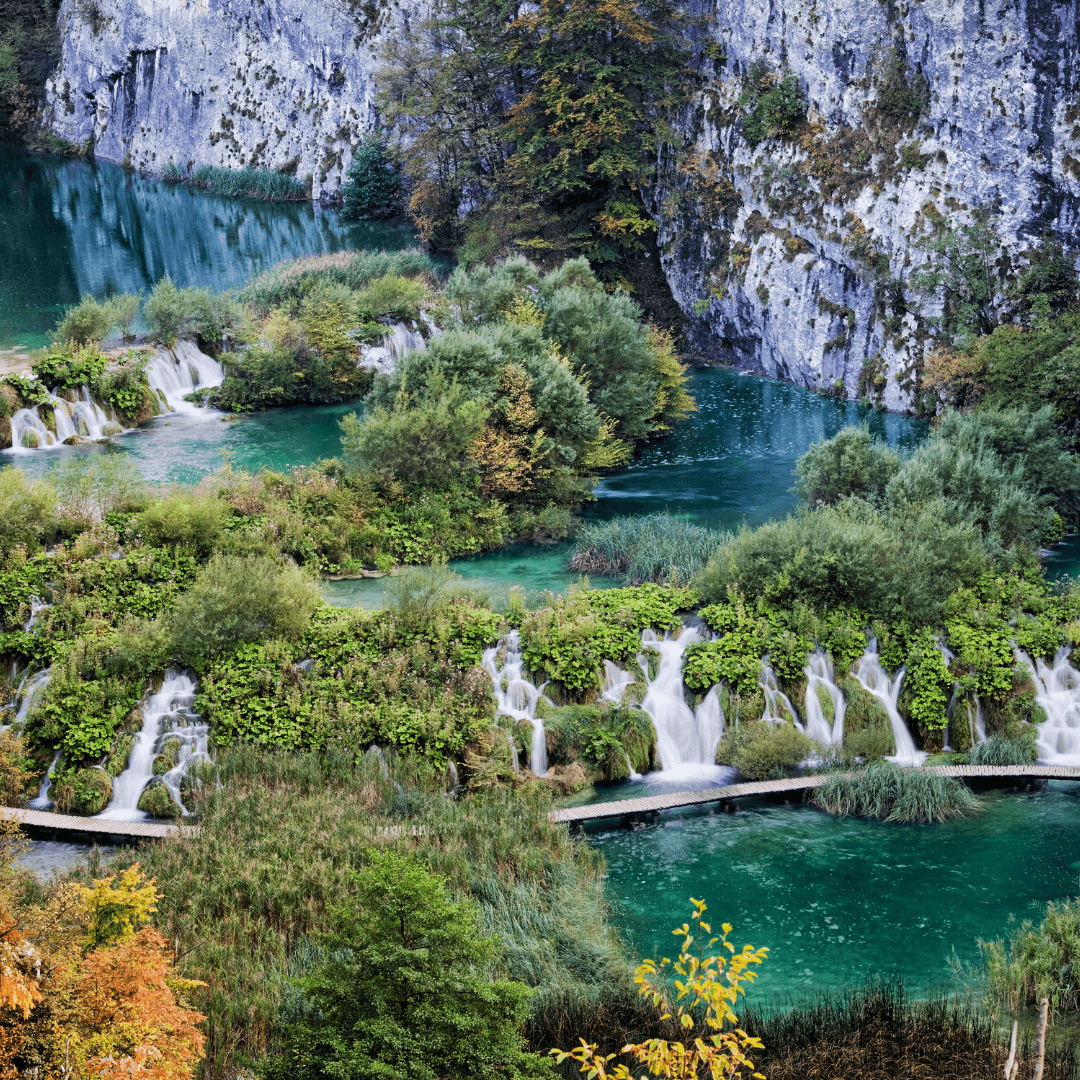
9. Plitvice Lakes National Park – Vegan Picnics In Nature
For nature-loving vegans, visiting Plitvice Lakes National Park offers a unique experience.
Pack a vegan picnic and explore the stunning waterfalls and lakes while enjoying plant-based sandwiches, salads, and snacks amidst the park's natural beauty.
These regions and cities in Croatia reflect the country's growing vegan scene, each offering culinary treasures and experiences for travellers seeking plant-based options.
Whether exploring historic cities, coastal towns, or island paradises, you'll find that Croatia's vegan-friendly destinations cater to various tastes and preferences.
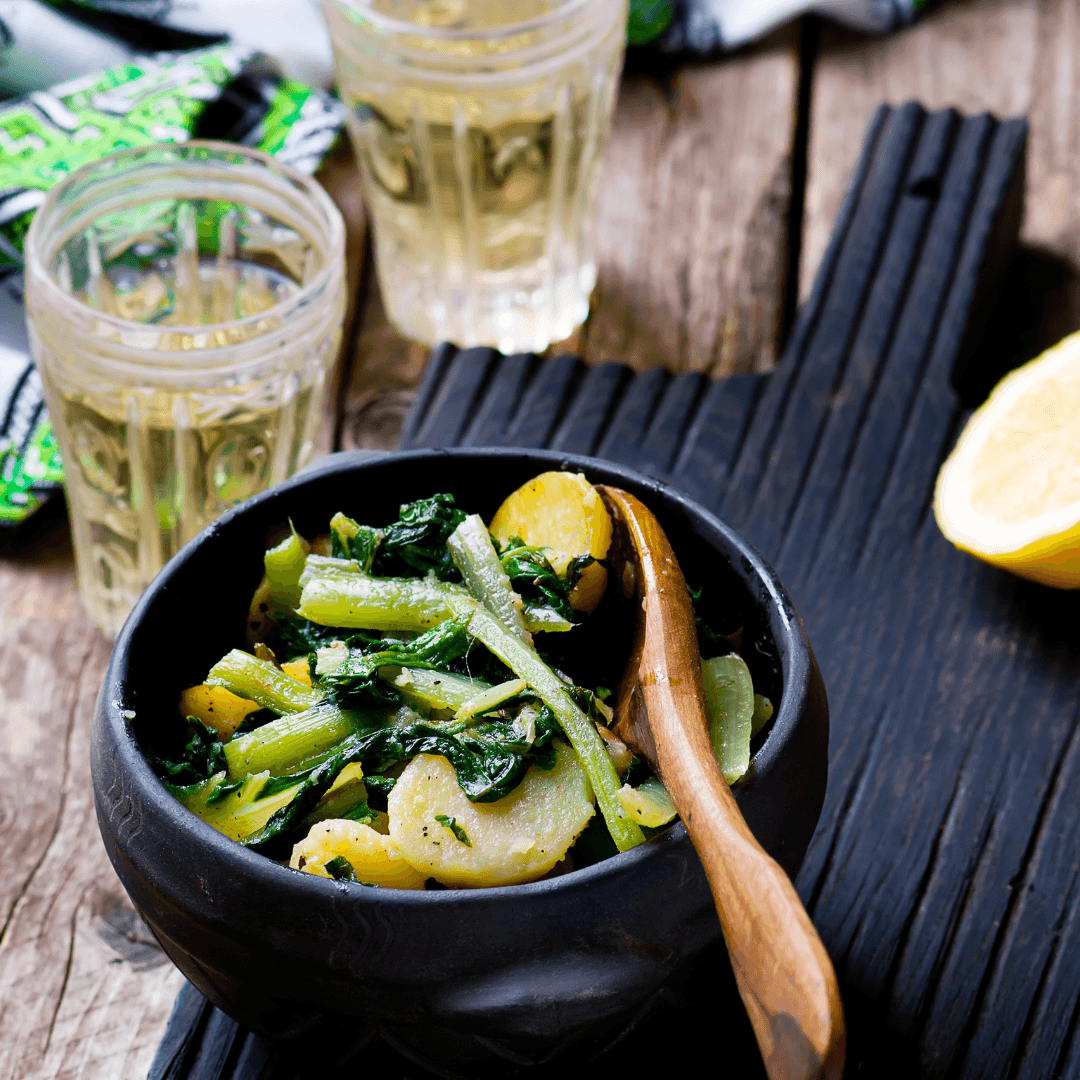
Plant-Based Croatian Dishes
Croatian cuisine, often celebrated for its rich seafood and meat dishes, surprisingly offers a wealth of plant-based delights that reflect the country's diverse regions and cultural influences.
One standout is “Peka,” a traditional Dalmatian specialty that roasts vegetables like potatoes, bell peppers, zucchini, fragrant herbs, and olive oil under a bell-shaped lid. The result is a smoky, aromatic medley showcasing the best Mediterranean flavours.
Equally enticing is “Blitva,” a side dish featuring Swiss chard sautéed with garlic and olive oil, a simple yet satisfying accompaniment to many Croatian meals.
For a taste of Slavonian cuisine, “Čobanac,” a hearty vegan stew packed with mushrooms, potatoes, and peppers, is a must-try.
And let's not forget the sweet finish – “Palačinke,” Croatian pancakes, can be effortlessly veganized with plant-based milk and egg substitutes, then filled with a variety of delectable fillings, from fruity jams to rich chocolate spreads.
Fritaja is a versatile dish that can be easily veganized. Made with chickpea flour (known as “brašno od slanutka”), water, and various vegetables and seasonings, it's like a savoury pancake.
You can find vegan frittata filled with ingredients like spinach, mushrooms, tomatoes, and even vegan cheese, providing a hearty and flavorful breakfast or brunch option.
Maneštra- This traditional Istrian dish is a comforting bean stew, often prepared with local varieties of beans, grains, and vegetables.
It's a wholesome and satisfying meal, perfect for chilly evenings. Vegan versions of maneštra abound, usually replacing meat with legumes, offering a rich, savoury flavour characteristic of Croatian cuisine.
Soparnik is a delightful Dalmatian specialty that dates back centuries. It's a savoury pie filled with Swiss chard or spinach, garlic, and olive oil.
While traditional recipes use a thin dough, vegan versions can easily be made with vegan-friendly pastry dough. The result is a flavourful, flaky pastry showcasing the vibrant flavour of Mediterranean vegetables. Croatia is renowned for its pickles, a popular side dish that complements various meals.
These tangy, brined cucumbers are naturally vegan, and you'll find them in different variations, from simple dill pickles to spicier options. They add a refreshing, crunchy element to Croatian dining.
Burek is a pastry that's found throughout the Balkans, including Croatia. While traditional burk is filled with meat or cheese, vegan versions often feature potato, spinach, or other plant-based fillings. It's a delicious snack or light meal option widely available in bakeries nationwide.
These diverse plant-based Croatian dishes offer a window into the country's culinary traditions and adaptability to vegan preferences.
Whether exploring coastal regions, inland towns, or historic cities, you'll discover various vegan delights that allow you to savour Croatia's rich flavours while adhering to your dietary principles.

Vegan-Friendly Accommodations
Croatia, a country renowned for its stunning coastlines and cultural richness, has experienced a notable surge in vegan-friendly accommodations, ensuring that travellers with plant-based preferences can fully appreciate the country's beauty and culinary offerings.
1. Coastal Vegan Havens In Croatia
Along the Adriatic coast, boutique hotels with a vegan ethos have sprung up, offering travellers the chance to wake up to the soothing sound of the waves and indulge in sumptuous plant-based breakfasts.
Imagine sipping almond milk cappuccinos and nibbling on vegan cheese platters while relaxing on a sun-kissed patio as the sun sets over the sparkling sea.
These coastal retreats are more than just accommodations; they are sanctuaries for vegan travellers.
2. Eco-Conscious Oases In Istria
Istria is a region renowned for its rolling vineyards and hilltop villages, and eco-conscious guesthouses offer sustainable living and vegan-friendly options.
These tucked-away lodgings often feature lush gardens where you can pick your herbs and vegetables to create delectable vegan dishes.
Picture dining al fresco under a canopy of stars, your plate filled with locally grown produce, and your heart content with the harmony of nature.
3. Budget Vegan Hostels in Zagreb
Croatia's capital, Zagreb, caters to budget-conscious vegan travellers, with many hostels embracing the plant-based lifestyle.
Here, you will find affordable stays and a vibrant community of like-minded travellers. Join communal vegan dinners where international guests bond over shared plant-based meals and stories of their adventures.
It's a unique opportunity to explore the city's bustling streets while nurturing global friendships.
4. Rural Vegan Retreats In Croatia
In Croatia's tranquil inland regions, rustic vegan-friendly accommodations allow you to escape the buzz of city life.
These retreats, often nestled in serene countryside, provide a taste of rural living with vegan meals sourced directly from the land.
Imagine indulging in hearty vegan stews made from locally grown vegetables while breathing in the crisp, clean air of the countryside.
5. Historic Vegan Hideaways In Croatia
Croatia's historic towns, such as Dubrovnik, Split, and Zadar, boast vegan-friendly guesthouses within ancient city walls.
These charming lodgings allow travellers to return in time while enjoying modern vegan comforts.
Imagine waking up in a centuries-old room with a blend of tradition and contemporary sustainability and then savouring vegan breakfasts crafted from locally sourced ingredients.
6. Secluded Island Retreats In Croatia
Croatia's islands are a haven for travellers seeking tranquillity. Many now offer vegan-friendly accommodations.
Picture a remote eco-lodge on an island like Hvar or Korčula, where you can reconnect with nature and feast on vegan delicacies prepared from ingredients grown on the island.
It's an opportunity to rejuvenate your body and soul in harmony with the pristine surroundings.
7. Family-Run Vegan B&Bs In Croatia
Along the Adriatic coast and within charming villages, family-run vegan bed and breakfasts warmly welcome travellers into their homes.
These cozy retreats offer personalized vegan breakfasts, often featuring homemade jams, freshly baked bread, and plant-based twists on traditional Croatian recipes.
Staying at a family-run B&B provides an intimate glimpse into Croatian culture and hospitality.

8. Vegan Glamping Adventures In Croatia
Croatia's lush landscapes now host vegan-friendly glamping sites for those seeking luxury amid nature.
Imagine glamorous camping in the heart of nature, with gourmet vegan meals and evenings spent by the campfire under a canopy of stars. It's a unique fusion of comfort and sustainability.
Each vegan-friendly accommodation in Croatia adds a layer of uniqueness to your travel experience.
Whether exploring historic towns, relaxing on secluded islands, relishing family-run hospitality, or indulging in glamping adventures, you'll find that Croatia's diverse offerings cater to various preferences and travel styles.
Vegan-Friendly Events And Festivals In Croatia
Croatia's burgeoning vegan scene has given rise to a tapestry of events and festivals uniquely celebrating plant-based living.
One highlight is the “Veganmania Festival” held in the heart of Zagreb, where the city's central square transforms into a vibrant vegan wonderland.
Imagine strolling through a kaleidoscope of food stalls offering vegan versions of traditional Croatian dishes alongside international plant-based cuisines while local bands serenade the crowd.
In Istria, the “Truffle and Wine Festival” embraces veganism by showcasing exquisite vegan truffle dishes paired with the region's renowned wines.
Picture yourself savouring truffle-infused vegan pasta and risotto while sipping on a glass of Istrian Malvazija, surrounded by rolling vineyards.
Moreover, coastal towns like Split host “Veggie Week,” where restaurants across the city offer special vegan menus, allowing you to embark on a culinary journey that unveils the coastal flavours of Dalmatia in a plant-based way.
These events celebrate veganism and offer a glimpse into Croatia's rich culinary heritage, illustrating how plant-based living is seamlessly woven into the country's cultural fabric.

Language And Communication Tips
Navigating Croatia's culinary landscape as a vegan traveller can be a delightful experience, especially with a few handy phrases and effective communication tips.
Begin by learning Croatian phrases like “Ja sam vegan” (I am vegan) and “Molim vas, jesti veganski” (Please, make it vegan).
These simple expressions convey your dietary preferences. When dining out, don't hesitate to politely ask, “Imate li veganske opcije?” (Do you have vegan options?), which signals to the staff that you're seeking plant-based choices.
Expressing gratitude is key; saying “Hvala” (Thank you) with a warm smile when the chef accommodates your request fosters positive interactions.
Remember, Croatian locals appreciate efforts to embrace their language and culture. Lastly, consider using a translation app or a vegan dining card with your Croatian dietary preferences to ensure clear communication.
By blending these phrases and tips with your genuine enthusiasm for Croatia's vegan offerings, you'll find that your culinary adventures become a bridge to cultural exchange and deeper connections with locals.

Vegan-Friendly Wine And Olive Oil Tours In Croatia
Croatia's enchanting landscapes are home to breathtaking scenery, thriving vineyards, and olive groves that have embraced vegan-friendly practices, offering travellers a unique and eco-conscious tasting experience.
In Istria, where rolling vineyards meet the Adriatic Sea, you can embark on wine and olive oil tours that showcase the region's rich history and commitment to sustainable and vegan-friendly production methods.
Picture yourself strolling through sun-kissed vineyards, learning about organic and vegan winemaking techniques, and sampling exquisite wines crafted with love and care.
The tour guides often explain how cruelty-free farming practices and minimal intervention are essential to preserving the region's natural beauty.
On the other hand, olive oil tours transport you to ancient groves, where you can witness the art of harvesting and pressing olives to create exquisite oils.
These tours offer a sensory journey and a profound connection to the land and its ethical, vegan-friendly agricultural traditions.
Your tastebuds will dance with delight as you savour the complexities of Istria's wines and olive oils, all while supporting practices that honour the environment and its bountiful offerings.
Local Vegan Community And Meetups In Croatia
Croatia's burgeoning vegan community welcomes travellers with open arms, offering various unique opportunities to connect and share experiences.
The heart of this community often beats in local meetups and events that celebrate plant-based living.
In vibrant Zagreb, for instance, you can join weekly vegan meetups in city parks, where locals and travellers gather to enjoy vegan picnics, share recipes, and exchange travel tips.
These gatherings foster a sense of camaraderie, providing a platform to learn about the best vegan-friendly spots in the city and discover hidden culinary gems.
Beyond the capital, coastal towns like Split host beachside yoga sessions followed by vegan potlucks, combining wellness and gastronomy against the backdrop of the stunning Adriatic.
Whether seeking advice on navigating Croatia as a vegan traveller or simply wanting to share stories and laughter with like-minded individuals, the local vegan community offers a warm and inviting embrace that enhances your journey through this Mediterranean jewel.
Conclusion
In conclusion, Croatia offers vegan travellers a captivating fusion of Mediterranean beauty, rich cultural heritage, and a blossoming plant-based scene.
From the picturesque coastal towns to the charming historic cities and the serene inland landscapes, the country invites you to explore its diverse regions while savouring delectable vegan cuisine that respects your dietary choices and the environment.
So, whether indulging in vegan truffle delicacies in Istria, connecting with like-minded travellers in Zagreb, or exploring the stunning Dalmatian coast, Croatia invites you to experience a vegan travel journey combining culinary delight with cultural enrichment.
This Mediterranean gem promises memorable plant-based meals and lasting memories of a land where ethics, environment, and epicurean pleasures harmoniously coexist.
I trust you enjoyed this article about the Vegan Travel Guide To Croatia. Please stay tuned for more blog posts to come shortly. Take care!
JeannetteZ
>>>Please click here to read my Vegan Travel Guides To World Destinations<<<
>>>Want To Learn How To Create Delicious, Cruelty-Free, Healthy AND 100% Vegan Meals? Try These Awesome Vegan Cooking Courses With A Free 7-DAY MEMBERSHIP<<<
Your Opinion Is Important To Me
Ideas? Thoughts? Questions? I would love to hear from you. Please leave me your questions, experiences, and remarks about this article on the Vegan Travel Guide To Croatia in the comments section below. You can also reach me by email at Jeannette@LivingTheVeganLifestyle.org.
Disclosure
This post may contain affiliate links. I earn from qualifying purchases as an Amazon Associate and other affiliate programs. Please read my full disclosure.
Here are links to some of my favourite articles:
Best Vegan Restaurants In Croatia
Best Vegan Restaurants In Albania
UK Vegan Travel Guide With Popular Vegan Restaurants

